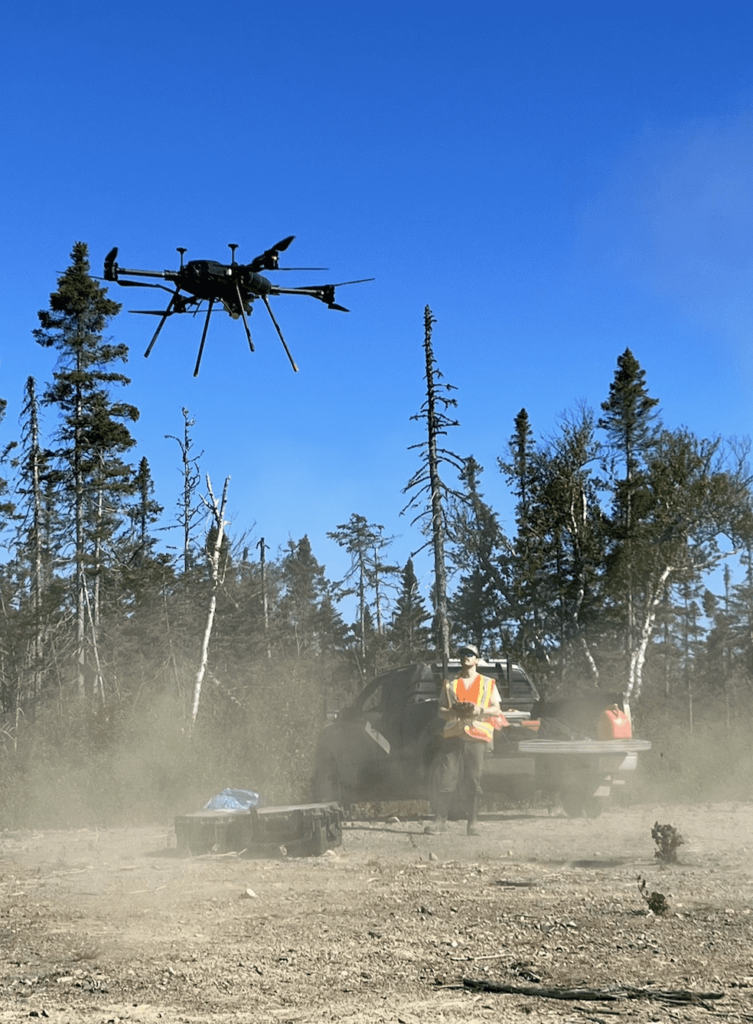



Working with Iris Automation, Overhead Intelligence has commenced its first major Extended Visual Line Of Sight (EVLOS) plus Beyond Visual Line Of Sight (BVLOS) 50/50 split flight operation using Iris Automation’s Casia I drone collision avoidance system.
In partnership with GroundTruth Exploration, the mission is for Unmanned Aerial Vehicle (UAV) magnetometer surveys across the entire province of Newfoundland and Labrador.
With the Special Flight Operations Certificate (SFOC) granted by Transport Canada, Overhead Intelligence is conducting large-scale magnetometer surveys for mineral deposits over high potential exploration areas, covering up to 500 line-km (about 20 km2) per day with its Phase 1 system.
Overhead Intelligence used Iris Automation’s Foundation Package of regulatory services to help complete the SFOC application. Over 18 months, Overhead Intelligence worked closely with Iris Automation to develop the extensive documentation needed by Transport Canada and the application was approved within a month of submission.
The SFOC allows one pilot to significantly expand the area they are able to cover in a day, enhancing the economies of scale for drone geophysical survey platforms. Overhead Intelligence plans to continue to secure additional SFOCs across Canadian Mineral Exploration districts in coming months.
“Autonomy unlocks the next century of growth in aviation by dramatically improving safety, cost efficiency and productivity with the amount of data gathered across larger distances,” said Lori DeMatteis, Global VP of customer success, sales and marketing at Iris Automation. “The work Overhead Intelligence has done is a prime example of this – scaling drone operations massively while seeing big benefits in both productivity and reduced costs. As a leader in this space, they are now well educated to go forward and complete further waiver and SFOC requests.”
“A drone operator faces a laundry list of barriers when trying to deploy UAV systems for large scale mapping projects. As a result, most mapping customers choose crewed aircraft for large and complex data collection campaigns,” said Roger O’Neill, Director, Overhead Intelligence. “The lack of available off-the-shelf UAV solutions has forced us to collaborate and develop a variety of integrations to even make an attempt at collecting data at this scale. Iris’s products and services are an example of top-class, relatively off-the-shelf integrations that actually help solve some of the biggest issues in the industry.
“Achieving and deploying this SFOC is a significant step towards our goal of fully automating the airborne mapping process. We can now push our mapping systems to the limit of their capabilities, which will be a massive disruption to the airborne mapping and geospatial collection industry in coming months. In time we will have fully automated systems capable of producing maps that are cheap enough to sell on a subscription basis.”





Related Posts
New Drone Fires Thales Missile in Unmanned Air Combat Milestone
UAS Startup Accelerator Awards 3M in Funding
US Navy Orders Unmanned Tactical Resupply Aircraft